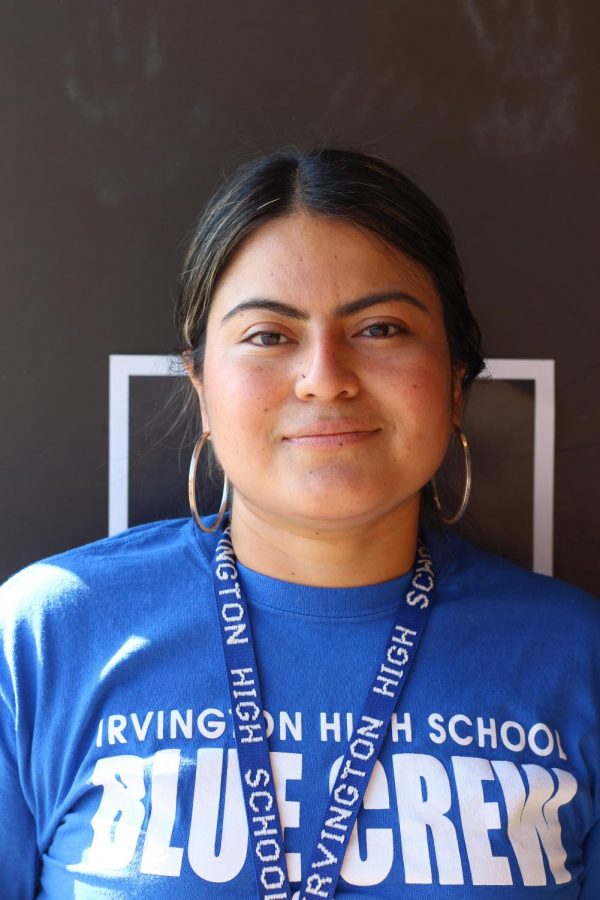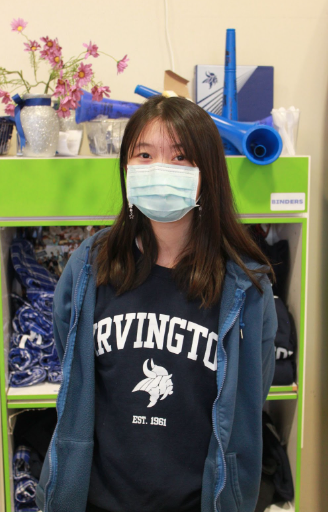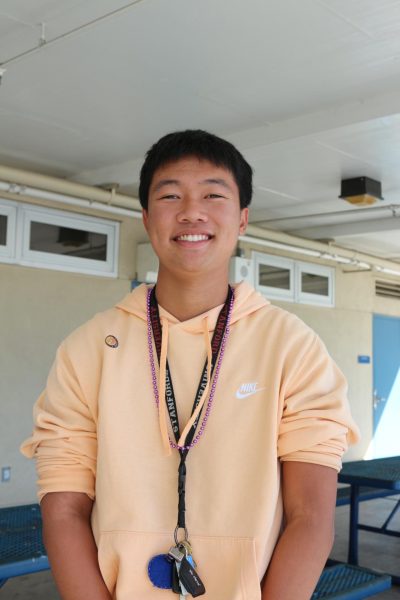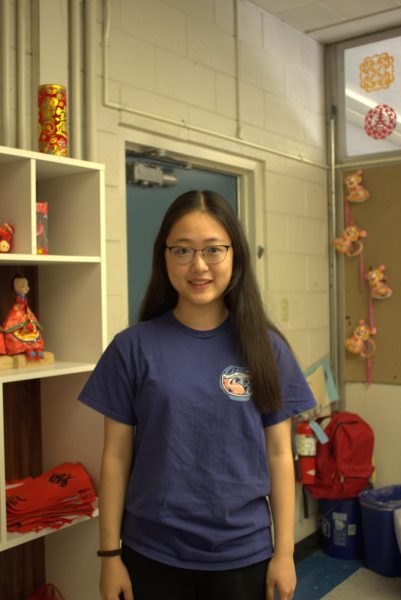New Teachers: Yeimy Ortiz
I got to experience my first year doing distance learning, which was a completely new experience. And now I get to experience Irvington in person, which is really nice. What I mostly like about teaching in person is that students get to use Spanish with other students more, and it’s easy for me to just put them in pairs instead of putting them in a breakout room, and then I get to see what everyone is doing, compared to checking breakout rooms and things like that. And it’s very easy for me to make them work with someone else. Like, “work with your partner next to you!” It’s just easy for me that way.
I have always liked learning or enjoyed talking about languages in general. I took French in high school for two years, even though I know Spanish. I just wanted to explore and learn French. I’m from Mexico, and for Spanish, I just want other students or other people to learn the language. And it’s not just the language, but it’s everything, right? Music, traditions, why people act a certain way. I just want other people to learn about Mexico and the language.
When I came to the US, I had to learn English, so I know what it’s like learning another language. Many people, especially my English teachers, helped me a lot and dedicated a lot of their time for me to learn English. That’s what inspired me the most to help others learn a language. So when someone told me, “Oh, you don’t know what it’s like learning Spanish!” Well, I don’t know what it’s like learning Spanish, because Spanish is my first language. But I know what it’s like learning another language, because I had to learn English.
I think that when we work with other people, we will learn from them. Working with others really helps, and that’s why I have my students always working with someone in the class because that’s how we learn, working with others. Another thing is practicing the language as much as we can. I always tell the students, “if we don’t use Spanish here in class, where else? Because at home, we speak other languages, right?” What strategy I used that helped me a lot was to stay in the language we’re learning. Teachers use different strategies, like hand movement, which help students because not everyone learns the same way. If I tell students to memorize 20 words, some students might do really well with that. They will memorize it, but not everyone learns the same way. So some students, they need music. That’s why I bring music into my classes. Sometimes they might memorize the singing part, or conjugating the verbs in that way. Hand movement and sometimes drawing pictures can help some students to memorize the new words.
My favorite part about teaching is when I see my students enjoy learning the language. I know most of the students at Irvington do care about their GPA. They do care about their grades. But I really love seeing my students really enjoying learning the language, when they’re asking questions, when they’re laughing, so not everything has to be stressful. Of course, it’s not easy having to memorize so many words and conjugating. I think the grammar is stressful for students when they learn too many rules that we have in Spanish, and they start getting desperate because it doesn’t make sense sometimes. These are the challenging parts when I feel like I need to slow down and think about my strategies: “Okay, what would help me to memorize these verbs in English to help my students in Spanish? Okay, maybe I’m not doing enough games. Maybe we need to do the singing again.”
I worked in a middle school also before becoming a high school teacher. You know middle school students—they’re becoming older but are still really young. I made my students draw a Mexico flag because it was our Independence Day. Our flag has an eagle in the middle. So something that I remember made me laugh a lot and was so cute to see was my middle school students drawing a chicken because they probably never knew it was an eagle. Maybe I didn’t explain it enough. I still have the picture of that!
I do really want students to learn Spanish. It’s not just passing the class. I know they mainly care about passing the class, but I will always tell them, “I want you to at least survive speaking the language.” So if they get to meet someone who speaks only Spanish, or if they go to a place where they only speak Spanish—they don’t have to go far, they don’t have to go to Mexico, or Spain, but maybe they go to L.A. where they speak a lot of Spanish, or New York. I want them to survive speaking the language and know at least the basics of the language, like greetings: “Where is the bathroom?” I tell them, “What if you get lost?”, so they should at least be able to ask for directions. I want my students to have a good experience learning the language in class.
Advice that I can tell my students is to enjoy their high school years. It seems like four years is a lot, if someone is a freshman, but believe me, it’s gonna go super fast. In one day, you will want to go back to being a high school student. Just enjoy the time. I know it’s a lot of pressure, having to do specific classes in order to get your high school diploma, but just enjoy the journey.











